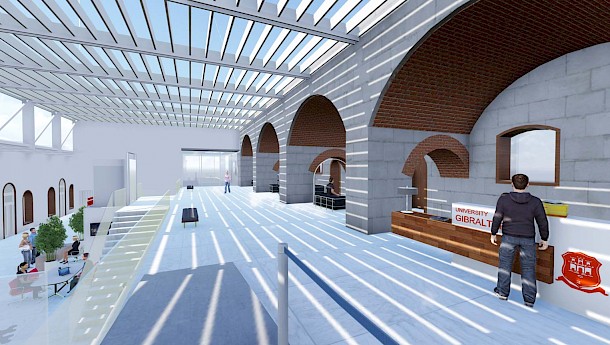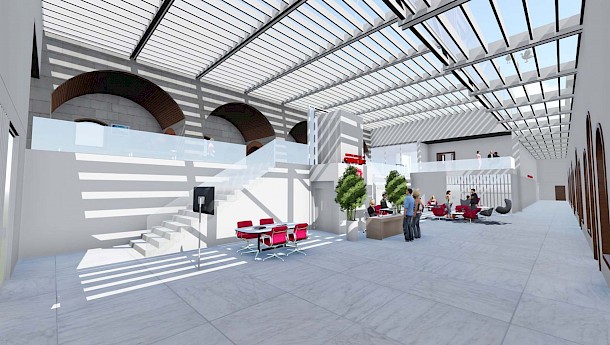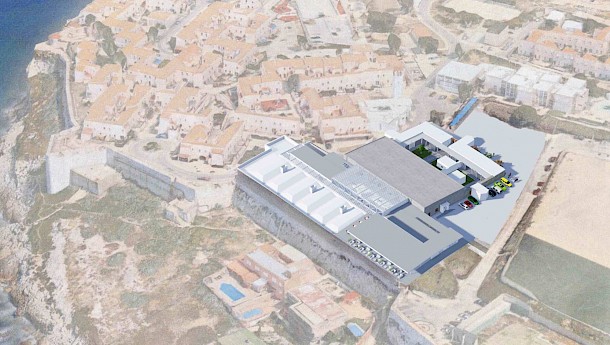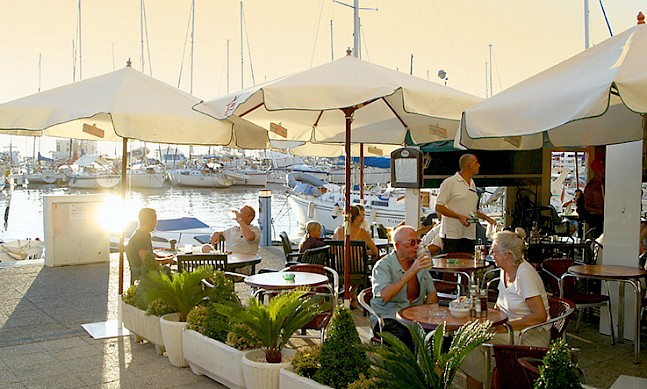The idea of establishing a university in Gibraltar is not a new one; it’s been talked about for years. But the current government made it one of its priorities when it took office in 2011 and it is now a reality, with the first inflow of students in September 2015.
Lacking natural resources on a small territory, Gibraltar’s greatest asset was always going to be its people and their ability to adapt to shifting needs in the services sector and to seize niche opportunities as they arose. Evidently, the better the population is educated and trained, the greater the value of that asset.
“Education is an absolute priority of the Gibraltarian government; we are investing in our future,” said Gilbert Licudi, minister for education, justice and international exchange of information. “Every penny spent on it is worth it.”
And Gibraltar has spent a pretty penny in ensuring access to a skilled labour force since a generous mandatory scholarship scheme for students to allow them to study in British universities was introduced in 1988. The system includes not just tuition fees, but also travel expenses and a living allowance. There are currently 866 Gibraltarians studying overseas, mainly in Britain. The scheme has been extended to also include post-graduate studies, turning out fully-qualified lawyers, accountants and other professionals. The cost of this during the latest academic year was £16 million.
Minister Licudi is himself a beneficiary of the scholarship scheme. He took the decision to leave school at 17 to work, got married at 19, and it wasn’t until the mandatory scheme was introduced when he was 28 that the minister decided to take advantage of it to study law before going on to work as a barrister with local law firm Hassans.
Today, he is overseeing the next, exciting development in Gibraltar’s education sector in the shape of the territory’s very own university, which will open its doors to its first influx of students in September. The local university will operate in parallel with the overseas scholarship system, whose current levels of funding will remain intact. The idea of becoming a university town had been in the offing for a number of years, but the current government made it one of its main goals to have it up and running before its term in office ran out.
“Education is an absolute priority of the Gibraltarian government. We are investing in our future.”
Gilbert Licudi Minister for education, justice and international exchange of information
Post ThisThe tertiary institute has been allocated £10 million to cover its first three years in operation, including the cost of refurbishing the building that will house the university. Thereafter, it will be expected to try to become self-financing through tuition fees and other means, with the campus expected to host about 1,000 students over the medium term. Licudi eventually expects the university to attract overseas students and offer classes in English for professional purposes.
In keeping with Gibraltarians’ finely-tuned sense of pragmatism, the university will start up with four faculties that reflect the needs and interests of the local economy and its culture. Courses will be offered in business and law, health studies and sports sciences, earth and life sciences and tourism and hospitality. “These are all identified with Gibraltar in some way,” explains Licudi, who believes the new university will reinforce Gibraltar’s sense of identity.
Today, he is overseeing the next, exciting development in Gibraltar’s education sector in the shape of the territory’s very own university, which will open its doors to its first influx of students in September. The local university will operate in parallel with the overseas scholarship system, whose current levels of funding will remain intact. The idea of becoming a university town had been in the offing for a number of years, but the current government made it one of its main goals to have it up and running before its term in office ran out.
The tertiary institute has been allocated £10 million to cover its first three years in operation, including the cost of refurbishing the building that will house the university. Thereafter, it will be expected to try to become self-financing through tuition fees and other means, with the campus expected to host about 1,000 students over the medium term. Licudi eventually expects the university to attract overseas students and offer classes in English for professional purposes.
In keeping with Gibraltarians’ finely-tuned sense of pragmatism, the university will start up with four faculties that reflect the needs and interests of the local economy and its culture. Courses will be offered in business and law, health studies and sports sciences, earth and life sciences and tourism and hospitality. “These are all identified with Gibraltar in some way,” explains Licudi, who believes the new university will reinforce Gibraltar’s sense of identity.












